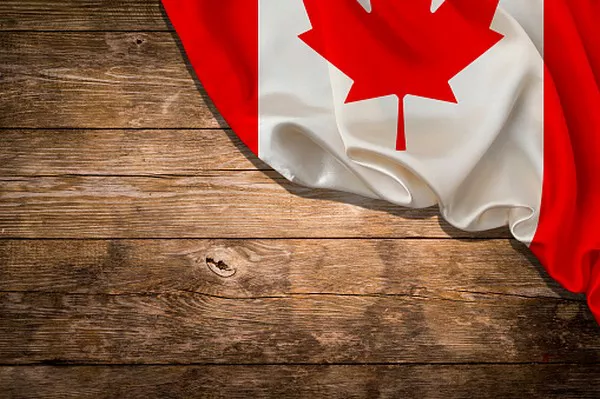Canada Day, observed annually on July 1st, is a significant national holiday celebrating the founding of Canada and its rich cultural heritage. Across the country, Canadians of all backgrounds come together to commemorate this special day with festivities, traditions, and expressions of national pride. This article explores the diverse ways in which Canadians celebrate Canada Day, highlighting traditions, activities, and the cultural significance of this important holiday.
Understanding Canada Day
Canada Day, originally known as Dominion Day, marks the anniversary of the confederation of Canada in 1867, when the British North America Act came into effect, uniting the provinces of Canada (now Ontario and Quebec), New Brunswick, and Nova Scotia into a single Dominion within the British Empire. Over time, Canada Day has evolved into a celebration of Canadian identity, values, and achievements, reflecting the country’s multicultural mosaic and diverse heritage.
1. National Symbols and Traditions
The Canadian Flag
Canada Day is often marked by displays of the national flag, the iconic red and white maple leaf. Communities across Canada adorn streets, buildings, and public spaces with flags as a symbol of national unity and pride.
National Anthem
Singing “O Canada,” the national anthem, is a cherished tradition on Canada Day. The anthem, with lyrics that celebrate Canada’s natural beauty, cultural diversity, and commitment to freedom, serves as a unifying symbol during celebrations.
Canadian Symbols and Icons
During Canada Day festivities, symbols such as the beaver, Canada goose, and maple leaf are prominently featured in decorations, parades, and cultural displays, highlighting their significance to Canadian identity and heritage.
2. Festivities and Activities
Community Events
Canada Day brings communities together through a wide range of events organized by municipalities, businesses, and community groups. These events include parades, concerts, fireworks displays, and multicultural festivals that showcase Canada’s diversity and artistic talent.
Citizenship Ceremonies
Canada Day is a popular occasion for citizenship ceremonies, where new immigrants officially become Canadian citizens. These ceremonies often feature speeches, oath-taking, and cultural performances that celebrate Canada’s commitment to inclusivity and diversity.
Outdoor Activities
Many Canadians spend Canada Day enjoying outdoor activities such as picnics, barbecues (known as “BBQs”), and sports events. Parks and recreational areas become bustling hubs of activity as families and friends gather to relax and celebrate.
Cultural Celebrations
Indigenous communities play a significant role in Canada Day celebrations, highlighting their rich cultural heritage through traditional ceremonies, dances, and storytelling that educate and inspire Canadians about Indigenous history and contributions.
3. Celebrations Across Canada
Ottawa, Ontario
As the nation’s capital, Ottawa hosts the largest Canada Day celebrations in the country. Events on Parliament Hill include concerts featuring Canadian artists, ceremonial performances, and the noon-hour “Changing of the Guard” ceremony.
Provincial Celebrations
Each province and territory in Canada celebrates Canada Day with events tailored to local traditions and cultures. From Victoria, British Columbia, to St. John’s, Newfoundland and Labrador, Canadians gather to celebrate their provincial identities while embracing national unity.
Urban and Rural Celebrations
Cities and towns of all sizes across Canada host Canada Day festivities. Urban centers like Toronto, Vancouver, and Montreal feature street festivals, art exhibits, and culinary events that highlight local artists and cuisines. Rural communities organize picnics, fairs, and community dances that foster a sense of belonging and camaraderie.
4. Cultural Significance
Historical Reflection
Canada Day provides an opportunity for Canadians to reflect on the country’s history, from its Indigenous roots to colonial settlement and nation-building. It encourages dialogue about reconciliation, inclusivity, and the ongoing journey towards truth and reconciliation with Indigenous peoples.
Multiculturalism and Diversity
Celebrating Canada Day underscores the value of multiculturalism and diversity in Canadian society. Festivals often feature performances by artists from diverse cultural backgrounds, showcasing the contributions of immigrants and fostering intercultural understanding.
National Unity
Above all, Canada Day promotes national unity and solidarity among Canadians from coast to coast to coast. It reinforces shared values of democracy, equality, and respect for diversity while celebrating the achievements and progress of the nation as a whole.
See also: How is Canada Day in Ottawa
5. Conclusion
Canada Day is a vibrant celebration of Canadian identity, culture, and values. Through festivities, traditions, and community gatherings, Canadians of all ages and backgrounds come together to honor their country’s past, present, and future. Whether attending parades in urban centers, participating in cultural events, or enjoying outdoor activities with loved ones, Canadians embrace the spirit of unity and pride that defines Canada Day as a symbol of national belonging and celebration.
By understanding how people celebrate Canada Day, we gain insight into the diverse cultural tapestry of Canada and the enduring significance of this national holiday in fostering unity, diversity, and shared heritage among Canadians.

